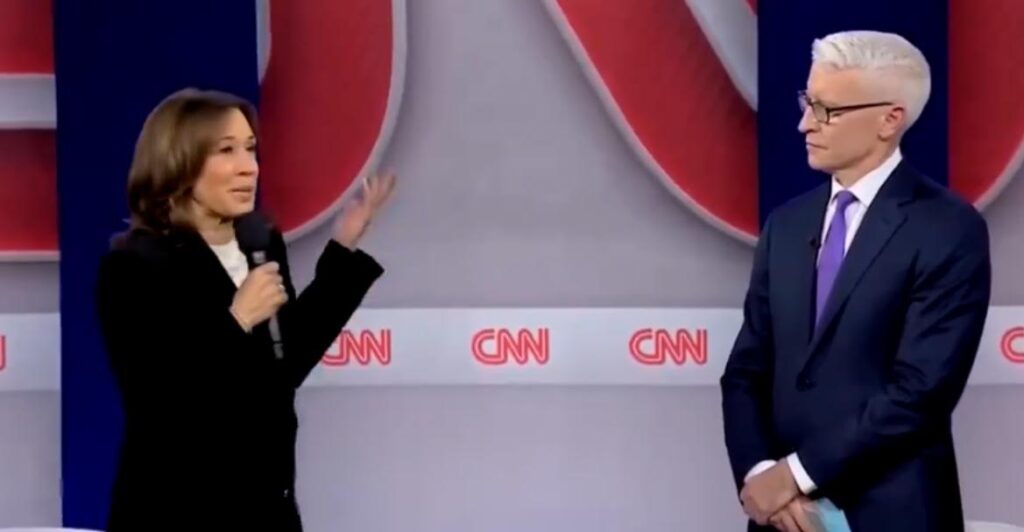Kamala Harris recently participated in a CNN town hall event aimed at undecided voters, which turned out to be a significant misstep for her campaign. The session, moderated by Anderson Cooper, aimed to address various voter concerns, but Harris was criticized for her responses, with CNN acknowledging that she “didn’t close the deal” with the audience. This event was perceived as an opportunity for Harris to solidify her position, yet many voters were left dissatisfied with her inability to provide concrete answers and solutions to pressing issues.
During the town hall, Cooper pressed Harris on her past four years of experience in the White House, questioning why certain promised policies had not been implemented. His inquiry highlighted a fundamental concern among voters regarding her track record in office. Harris’s response was viewed as inadequate; she mentioned the need for changes but failed to articulate specific actions or strategies that would lead to the desired results. Her vague assurances only fueled skepticism about her effectiveness as a leader.
Criticism of Harris’s performance came not only from the audience but also from political commentators and analysts. Republican strategist David Urban branded the town hall a “dumpster fire.” His remarks reflected a broader sentiment that Harris’s responses were confusing and lacked focus. Urban’s critique emphasized the disconnect between her rhetoric and the expectations of voters who are looking for transparency and accountability from their elected officials.
Throughout the event, Harris repeatedly stated her commitment to security at the border and lowering grocery prices, but these assertions struck some as mere platitudes. Voters were curious about the practical steps she would take to achieve these goals, particularly given the existing challenges that persist in these areas. Cooper’s persistent questioning illuminated a significant gap between Harris’s promises and her ability to define how those goals would be met given her current status in office.
Harris’s inability to provide substantive responses seemed to contribute to a growing sense of frustration among undecided voters, which is particularly detrimental as she attempts to solidify her support. The town hall was supposed to be a platform for engagement and persuasion but instead became a focal point of criticism for her lack of preparedness and clarity in addressing voter concerns. This lack of connection with the audience is particularly damaging for a public figure aiming to unite and rally support, especially as elections approach.
In conclusion, Kamala Harris’s CNN town hall was marked by hesitation and a lack of coherent messaging, ultimately leading to negative reactions from both the media and political analysts. The event underscored the challenges Harris faces as she juggles her responsibilities and the evolving expectations of American voters. As she continues her campaign, it remains to be seen how she will address these shortcomings and regain the confidence of constituents who are looking for decisive leadership and specific solutions to the issues that affect their daily lives.

